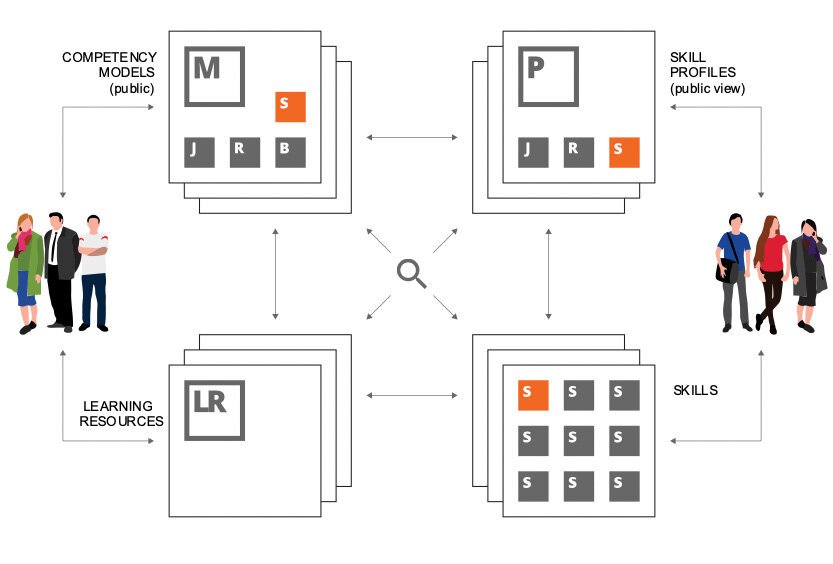Co-creation of Competency Models for Customer Success and Pricing Excellence
By Steven Forth
Co-Creation is one way that ‘open competency models’ are actually open!
Pricing Expertise and Customer Success are two of the key capabilities for growing companies. Ibbaka Talent is building open competency models for Pricing, Customer Success, Design Thinking and Adaptation to Climate Change. We are actively working with these communities of practice to build and evolve these models. Here is where we are so far:
For Pricing Expertise
we are designing for the following roles (subject to community input). Note that Roles are not the same as Jobs. Jobs are composed of Roles and a person in a non-pricing position, like a product manager or sales leader, could have a pricing role added to the job.
Pricing AI Expert
Pricing Analyst
Pricing and Revenue Optimization Expert
Pricing Coach
Pricing Designer
Pricing Strategist
Pricing System Administrator
For Customer Success
we are thinking of supporting the following roles (also subject to community input).
Customer Advisory Board Partner
Customer Advocacy Expert
Customer Experience Expert
Product Expert
Professional Services Member
Value to Customer Expert
You may be wondering, “Just how are these models open?”
The direct answer is that they are being provided under a Creative Commons license and people will be able to use and modify these models with attribution. We make money when you want to use them on our platform as input into your own customized models.
The models are also open in that they are designed to evolve. They evolve in three ways.
They include skills bubbling up from users
Different models can be combined
Community insights and conversations can be applied
Skills bubbling up from users
Anyone can have a free profile on Ibbaka-TeamFit. As people develop their profiles, adding new skills, projects and roles, our system builds a skill graph that codes the relationships between skills. Skills associated with one of the open competency models (Design Thinking, Pricing Expertise, Customer Success, Adaptation to Climate Change) can be bubbled up into the model so that it evolves in response to the real skills used by the people with the competency.
Different models can be combined
No one model is or should be complete in itself and no one model is likely to describe actual jobs in a specific context (company, project, job, team). Models can be more powerful when combined. Sometimes the combination will enrich an existing model. Other times it will generate a whole new model, perhaps for a new discipline.
Community insights and conversations can be applied
One way we are doing this is through the co-creation session, one of many we will be having. We also reach out through surveys, conversations on social media, and welcome all feedback and insights.
For those interested in the larger, strategic, goals for talent optimization, and the role that skills and competencies play, read the our recap from the 5 Strategies to Transform HR.
Ibbaka Posts on Competency Models and Competency Frameworks
From user experience to competency model design - Margherita Bacigalupo and EntreComp
Competency framework designers on competency framework design: The chunkers and the slice and dicers
Competency framework designers on competency framework design: Victoria Pazukha
Design research - How do people approach the design of skill and competency models?
The Skills for Career Mobility - Interview with Dennis Green
Lessons Learned Launching and Scaling Capability Management Programs
Talent Transformation - A Conversation with Eric Shepherd, Martin Belton and Steven Forth
Competency Models Made Easy - Two Simple Spreadsheets to Build Your Own Competency Models
Individual - Team - Organizational use cases for skill and competency management
Co-creation of Competency Models for Customer Success and Pricing Excellence (this post)
Competencies for Adaptation to Climate Change – An Interview with Dr. Robin Cox
Architecting the Competencies for Adaptation to Climate Change Open Competency Model
Integrating Skills and Competencies in the Talent Management Ecosystem
Organizational values and competency models – survey results





